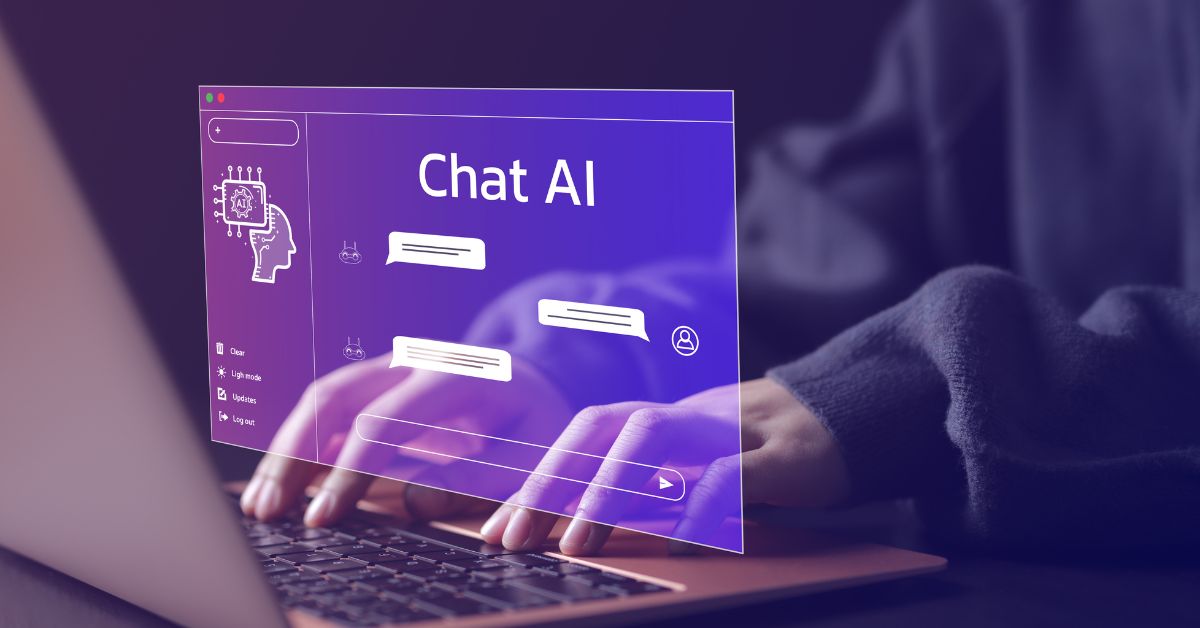How AI is Revolutionizing Digital Marketing Strategies are transforming digital marketing by enabling personalized customer experiences, automating campaigns, and enhancing data analytics. It optimizes ad targeting, improves customer segmentation, and streamlines content creation. Machine learning algorithms predict consumer behavior, helping brands make data-driven decisions, boost engagement, and drive growth. AI empowers marketers with innovative, efficient strategies for success.
How AI is Revolutionizing Digital Marketing Strategies
The world of digital marketing has experienced a seismic shift over the past few years, driven by rapid advancements in artificial intelligence (AI). Businesses and marketers are constantly striving to stay ahead of the curve, and AI has become an indispensable tool in this quest. The integration of AI into digital marketing strategies is revolutionizing how businesses engage with customers, optimize their operations, and drive growth. This blog post will delve into the various ways AI is transforming digital marketing, the benefits it offers, and how businesses can leverage it for success.
Table of Contents
- Introduction to AI in Digital Marketing
- AI in Data Analysis and Customer Insights
- Personalization at Scale
- AI-Powered Content Creation
- AI in Email Marketing Automation
- AI-Driven Advertising
- Chatbots and Conversational Marketing
- AI and Social Media Marketing
- Voice Search Optimization and AI
- Predictive Analytics in Digital Marketing
- AI’s Role in SEO Optimization
- AI-Powered Marketing Automation Tools
- Challenges and Ethical Considerations
- The Future of AI in Digital Marketing
- Conclusion
1. Introduction to AI in Digital Marketing
Artificial intelligence refers to the simulation of human intelligence by machines, particularly computer systems, to perform tasks that typically require human cognition. In digital marketing, AI has come to play a pivotal role in automating processes, analyzing data, predicting outcomes, and providing personalized customer experiences.
AI technology is evolving rapidly and is being integrated into various facets of marketing strategies. Businesses today can leverage AI for a variety of applications, such as automating workflows, analyzing consumer behavior, and enhancing customer service. It is clear that AI is not just a passing trend—it is the future of digital marketing.
2. AI in Data Analysis and Customer Insights
One of the most significant advantages of AI in digital marketing is its ability to analyze vast amounts of data at lightning speed. Traditionally, marketers would spend days or even weeks sifting through data to extract insights. AI-powered tools can now analyze user behavior, demographics, purchasing patterns, and even predict future trends with unparalleled accuracy.

How AI Is Used in Data Analysis:
- Customer Segmentation: AI can analyze user data to create highly specific customer segments, allowing marketers to target their campaigns more effectively.
- Behavioral Analytics: AI systems track and interpret user behavior in real-time, enabling businesses to make adjustments to their marketing strategies instantaneously.
- Predictive Analysis: AI algorithms can forecast future trends based on historical data, helping marketers to make data-driven decisions.
By understanding their customers better, businesses can create more targeted marketing campaigns, optimize the user experience, and increase customer retention.
3. Personalization at Scale
Personalization has always been key to successful marketing strategies, but scaling personalized experiences for a large audience has traditionally been challenging. AI changes that by enabling marketers to deliver highly personalized content to individual customers, even at scale.
AI-Powered Personalization in Digital Marketing:
- Product Recommendations: AI analyzes user behavior to recommend products tailored to individual preferences. For example, Amazon uses AI to suggest products based on a customer’s previous searches, purchases, and browsing history.
- Dynamic Content Creation: AI tools can generate personalized content such as emails, web pages, and social media posts for different audience segments, ensuring that each customer receives a unique experience.
- Hyper-Targeted Advertising: AI can analyze customer data to create more precise and personalized ads, increasing the chances of conversion.
Personalized marketing not only increases customer engagement but also builds long-lasting relationships with consumers, resulting in increased brand loyalty.
4. AI-Powered Content Creation
AI is also revolutionizing content creation in digital marketing. Traditionally, content creation has been a time-consuming task, requiring human effort for researching, writing, and optimizing. Today, AI-driven tools are changing the landscape of content production by automating many of these processes.
Examples of AI in Content Creation:
- Natural Language Generation (NLG): AI can automatically generate human-like text based on data inputs. Companies like OpenAI’s GPT models are creating written content ranging from blog posts to news articles and product descriptions.
- Content Curation: AI-powered systems can curate content from various sources, delivering relevant information to target audiences without human intervention.
- Optimization for SEO: AI tools such as Clearscope and MarketMuse help marketers optimize their content for SEO by suggesting relevant keywords, topics, and structure based on search engine algorithms.
AI does not only help in creating written content, but it also assists in generating images, videos, and even voice-based content. This significantly reduces the time and effort required in content creation, allowing businesses to focus on strategy and customer engagement.
5. if AI in Email Marketing Automation
Email marketing remains one of the most effective channels for engaging customers, but AI is making it smarter and more efficient. AI-driven email marketing platforms are helping businesses send personalized, timely, and relevant content to their subscribers, significantly improving open rates and conversions.
AI’s Impact on Email Marketing:
- Segmentation and Targeting: AI can analyze customer data to segment email lists based on behavior, preferences, and purchasing history, ensuring that each subscriber receives content tailored to their needs.
- A/B Testing: AI can run thousands of A/B tests on email subject lines, body content, and CTAs to determine the most effective variations for different customer segments.
- Predictive Send Times: AI-powered systems analyze customer behavior to predict the best times to send emails, maximizing engagement and reducing unsubscribes.
By using AI in email marketing, businesses can achieve higher levels of personalization, optimize campaigns for better results, and automate routine tasks, ultimately increasing their marketing efficiency.
6. AI-Driven Advertising
One of the most significant applications of AI in digital marketing is in advertising. AI is reshaping how businesses approach online advertising by automating processes and optimizing campaigns in real-time. Platforms like Google Ads and Facebook Ads are already leveraging AI to improve the precision of targeted advertising.
Key Applications of AI in Advertising:
- Programmatic Advertising: AI automates the buying and selling of ad inventory in real-time. It uses algorithms to purchase ad space based on data, ensuring that ads are shown to the most relevant audiences.
- Predictive Bidding: AI analyzes data to predict which users are most likely to convert and adjusts bids accordingly to maximize ad spend efficiency.
- Ad Creation and Optimization: AI can automatically generate ad copy, images, and videos optimized for performance. Additionally, it can test different ad creatives and adjust them in real-time to improve results.
AI-driven advertising not only reduces the manual effort involved in managing campaigns but also enhances targeting accuracy, ensuring that businesses get the best return on their ad spend.
7. Chatbots and Conversational Marketing
Chatbots are one of the most visible and widely adopted forms of AI in digital marketing. Powered by natural language processing (NLP), chatbots enable businesses to engage with customers 24/7, providing instant support and personalized experiences.
Benefits of AI-Powered Chatbots:
- Customer Support: Chatbots can answer customer queries in real time, reducing response times and improving customer satisfaction.
- Lead Generation: AI-driven chatbots can engage visitors on a website, qualify leads, and guide them through the sales funnel.
- Personalized Interactions: Chatbots can analyze user data to provide personalized recommendations and assistance, improving the customer experience.
By automating customer interactions, businesses can save time and resources while offering faster and more efficient support.
8. AI and Social Media Marketing
Social media platforms are an essential part of any digital marketing strategy, and AI is playing an increasingly prominent role in helping businesses optimize their social media presence.
AI’s Role in Social Media Marketing:
- Content Scheduling and Posting: AI tools can automate social media posting schedules, ensuring that content is posted at optimal times for maximum engagement.
- Social Listening: AI-driven social listening tools monitor brand mentions, sentiment, and trends across social media platforms, providing valuable insights for marketers.
- Influencer Marketing: AI can help identify the most relevant influencers for a brand by analyzing engagement metrics and audience demographics.
AI helps marketers stay on top of social media trends, engage with their audiences more effectively, and build a strong online presence.
9. Voice Search Optimization and AI
The rise of voice-activated assistants like Siri, Alexa, and Google Assistant has changed the way people search for information online. As more consumers turn to voice search, businesses must adapt their digital marketing strategies to optimize for this new search behavior. AI plays a crucial role in voice search optimization by helping marketers understand how people use natural language to search.

if AI-Driven Voice Search Optimization Strategies:
- Conversational Keywords: AI tools can help businesses identify long-tail, conversational keywords that users will likely say when performing a voice search.
- Structured Data Markup: AI can help optimize website content for featured snippets and rich results, often the source of voice search answers.
- Local Search Optimization: Voice searches tend to have a local intent. AI can help businesses optimize their listings for local SEO, ensuring they appear in relevant voice search results.
As voice search continues to grow in popularity, businesses that optimize their digital marketing strategies for voice search will gain a competitive advantage.
10. Predictive Analytics in Digital Marketing
Predictive analytics is a crucial application of artificial intelligence (AI) in digital marketing, allowing businesses to use historical data and AI-driven algorithms to forecast future trends, customer behaviors, and marketing outcomes. This powerful tool provides marketers with actionable insights, enabling them to make more informed decisions and optimize their strategies for better results.
Predictive analytics works by collecting and analyzing vast amounts of data from various sources, including customer interactions, website traffic, purchase history, and engagement metrics. By identifying patterns and trends, AI can predict future outcomes, helping businesses anticipate customer needs, allocate resources efficiently, and drive growth.
The Benefits of Predictive Analytics in Digital Marketing
- Improved Customer Targeting: Predictive analytics allows marketers to segment their audience based on past behaviors and predict which customers are most likely to engage with certain campaigns. By identifying the most receptive audience, marketers can create more personalized and relevant messages that resonate with specific customer segments.
- Personalized Marketing Campaigns: Predictive models analyze customer behavior and preferences to tailor marketing campaigns. This means businesses can serve personalized offers, product recommendations, and content to individual customers at the right time, enhancing the overall customer experience. For example, Netflix uses predictive analytics to recommend content based on user’s viewing history and preferences, significantly increasing engagement.
- Optimizing Marketing Budgets: With predictive analytics, businesses can allocate their marketing budget more effectively by identifying the channels, strategies, and campaigns that are most likely to yield the best results. AI-powered tools can predict the expected ROI of marketing activities, allowing companies to invest in high-performing areas and reduce spending on less effective tactics.
- Predicting Customer Lifetime Value (CLV): One of the most valuable applications of predictive analytics is in determining customer lifetime value. AI models can predict the future value of a customer based on their past behavior, purchase history, and engagement levels. This insight allows businesses to focus on high-value customers who are likely to bring long-term revenue, leading to better resource allocation and targeted loyalty programs.
- Churn Prediction and Prevention: AI-driven predictive analytics can identify patterns of customer behavior that indicate a likelihood of churn. By recognizing these early warning signs, businesses can take proactive measures to retain customers. For instance, predictive analytics may reveal that customers who engage less frequently with a brand are more likely to churn, prompting marketers to implement personalized retention strategies to keep them engaged.
- Enhancing Lead Scoring: Predictive analytics can improve the accuracy of lead scoring by analyzing historical data to determine which leads are most likely to convert. AI-driven lead scoring models evaluate various factors such as demographics, behavior, and engagement, assigning a score that indicates the likelihood of conversion. This helps sales and marketing teams prioritize high-potential leads and focus their efforts on those most likely to generate revenue.
- Dynamic Pricing: Predictive analytics can also be used to optimize pricing strategies by forecasting how changes in pricing will impact sales and demand. E-commerce platforms, for instance, use AI to adjust prices dynamically based on factors such as customer behavior, competitor pricing, and market conditions. This ensures that businesses can offer competitive pricing while maximizing profitability.
- Content Strategy Optimization: Predictive analytics helps businesses determine which types of content resonate best with their audience by analyzing engagement metrics such as time on site, click-through rates, and conversions. AI can predict which topics, formats, and channels will drive the most engagement, allowing marketers to create content strategies that align with audience preferences.
- Predicting Sales Trends: By analyzing historical sales data and market trends, predictive analytics can forecast future sales trends, helping businesses plan their inventory, marketing efforts, and resource allocation accordingly. For example, retailers can use AI to predict which products will be in high demand during specific seasons, enabling them to stock up on popular items and avoid overstocking on less in-demand products.
- Customer Journey Mapping: Predictive analytics can map out the entire customer journey by analyzing touchpoints and interactions across multiple channels. AI models can predict the steps a customer is likely to take before making a purchase, allowing marketers to optimize their customer experience strategies. This can include delivering personalized messages at key moments in the customer journey to increase the likelihood of conversion.
11. AI’s Role in SEO Optimization
AI has transformed SEO optimization, offering businesses and marketers new tools to enhance their visibility and improve their search rankings. Here are some key ways AI is reshaping SEO:
1. Content Creation and Optimization
AI can help generate content tailored to user search intent, ensuring it’s highly relevant and engaging. Tools like GPT-4 assist in crafting blog posts, articles, and meta descriptions that are optimized with the right keywords. AI also provides insights on content gaps and opportunities for improving existing content to rank better.
2. Keyword Research
AI-powered tools like SEMrush, Ahrefs, and Google’s AI-driven RankBrain analyze large datasets to identify the most effective keywords. These tools can predict trending keywords based on historical data, seasonal trends, and search behavior changes.
3. Voice Search Optimization
With the rise of virtual assistants (Siri, Alexa, etc.), voice search is becoming more prevalent. AI helps optimize content for voice queries by focusing on conversational keywords and answering common questions directly. This is especially important for featured snippets and local SEO.
4. Predictive Analysis
AI algorithms can predict future search trends, enabling businesses to stay ahead of the curve. By analyzing user behavior patterns, search engines can forecast the types of content and search terms that will be popular, helping marketers adjust their strategies proactively.
5. User Experience and Personalization
Search engines increasingly prioritize user experience (UX). AI tools analyze website performance, load times, and mobile optimization, recommending fixes that enhance user experience. Additionally, AI personalizes search results based on user data, tailoring content to individual preferences and behaviors.
6. Automation of SEO Tasks
AI automates repetitive SEO tasks like meta tag creation, alt text generation for images, and backlink analysis. This allows SEO professionals to focus on strategy and creative aspects of their campaigns.
7. Rank Tracking and Performance Analysis
AI-driven tools provide real-time insights into ranking fluctuations and performance metrics. By continuously analyzing website performance, AI can alert users to drops in rankings or technical issues, enabling quick adjustments.
8. On-Page Optimization
AI assists in fine-tuning on-page elements like title tags, headers, and internal linking structures. It analyzes what competitors are doing and provides actionable recommendations to enhance your site’s relevance and authority.
9. Image and Video SEO
With advances in AI, search engines are better at analyzing images and videos. AI tools can optimize visual content by adding relevant keywords, improving alt text, and even creating transcripts for videos, making them more discoverable in search results.
AI is revolutionizing SEO by making it more data-driven, efficient, and user-centric. As search algorithms become smarter, leveraging AI tools for SEO optimization is essential for businesses looking to stay competitive in the digital landscape. Whether through content creation, predictive analysis, or voice search optimization, AI continues to shape the future of SEO.
12. AI-Powered Marketing Automation Tools
AI-powered marketing automation tools have revolutionized the way businesses interact with customers, streamline marketing efforts, and drive conversions. Below are some prominent tools and how they enhance marketing processes:

1. HubSpot
- Features: A leading marketing platform, HubSpot integrates CRM with AI-driven automation. It offers email marketing, social media management, and lead scoring using machine learning to predict which leads are most likely to convert.
- AI Applications: AI helps automate email campaigns, optimize lead nurturing, and analyze customer behavior to predict trends.
2. Marketo Engage (Adobe)
- Features: A robust B2B marketing automation tool, Marketo Engage uses AI for account-based marketing (ABM), lead nurturing, and customer lifecycle management.
- AI Applications: Marketo uses predictive analytics to determine the best marketing messages and channels for each lead.
3. Salesforce Pardot
- Features: A powerful platform for B2B marketing automation, Pardot integrates with Salesforce’s CRM and provides AI-powered insights for better lead engagement and marketing ROI.
- AI Applications: Pardot’s Einstein AI helps predict lead scores, automates follow-ups, and delivers personalized content to customers based on their behavior.
4. ActiveCampaign
- Features: Known for its email marketing and automation capabilities, ActiveCampaign uses AI to optimize customer journeys and trigger automation based on real-time data.
- AI Applications: Predictive content and predictive sending help to optimize email campaigns, ensuring messages reach audiences at the most effective times.
5. Drift
- Features: Focused on conversational marketing, Drift uses AI chatbots to interact with website visitors, qualify leads, and drive engagement in real-time.
- AI Applications: Drift’s AI chatbot can schedule meetings, answer customer inquiries, and route leads to the appropriate sales reps based on lead scoring.
6. Autopilot
- Features: A visual marketing automation tool that uses AI to help businesses automate workflows across email, SMS, and social channels.
- AI Applications: Autopilot’s machine learning algorithms help identify the most effective messaging and workflows, improving customer retention.
7. Sendinblue
- Features: A comprehensive marketing platform offering email, SMS, and social media marketing. It leverages AI to provide personalized email content and optimize campaigns.
- AI Applications: Sendinblue’s AI can analyze customer interactions to deliver content that’s most likely to convert leads.
8. Mailchimp
- Features: Originally known for email marketing, Mailchimp now integrates AI tools to automate campaigns and provide insights on customer data.
- AI Applications: Mailchimp’s AI recommends the best send times, subject lines, and content layouts for emails to boost open rates and engagement.
9. SharpSpring
- Features: A marketing automation and CRM platform tailored for small and medium-sized businesses. SharpSpring incorporates AI to automate lead scoring, email campaigns, and follow-ups.
- AI Applications: AI-driven insights help marketers optimize customer journeys, and predictive behavior tools assist in refining marketing strategies.
10. AdRoll
- Features: Known for retargeting and display advertising, AdRoll uses AI to help businesses run ads across different platforms. It automates the process of identifying the right audience and determining ad spend.
- AI Applications: AdRoll’s AI-based algorithms help predict which users are most likely to engage with ads, and its machine learning models optimize ad placement and bidding strategies.
Benefits of AI-Powered Marketing Automation Tools
- Personalization: AI tailors marketing messages to individual users based on their behavior and preferences, leading to more meaningful interactions.
- Efficiency: Automation eliminates repetitive tasks, freeing up time for marketers to focus on strategy and creativity.
- Data-Driven Insights: AI provides real-time analytics and predictions, allowing marketers to make data-informed decisions that improve ROI.
- Cost Savings: By optimizing marketing efforts and reducing manual tasks, AI-driven automation can significantly reduce marketing costs.
- Scalability: AI tools help businesses scale their marketing efforts, ensuring consistency across all channels as they grow.
These tools are essential for businesses looking to streamline operations and maximize the effectiveness of their marketing campaigns.
13. Challenges and Ethical Considerations
When discussing challenges and ethical considerations in various fields, the specifics will depend on the context. Let me give you a general outline of common challenges and ethical issues across different domains. If you have a specific field in mind, I can provide more tailored insights.
1. Technology and AI
Challenges:
- Bias in algorithms and data collection.
- Ensuring privacy and security.
- Balancing innovation with regulatory compliance.
Ethical Considerations:
- Privacy concerns with data usage (e.g., facial recognition, user tracking).
- Impact on employment due to automation and AI-driven job displacement.
- Ensuring fairness and preventing biases in machine learning models.
2. Business and Marketing
Challenges:
- Navigating global competition and regulatory landscapes.
- Balancing short-term profit goals with long-term sustainability.
Ethical Considerations:
- Ethical marketing, avoiding manipulation or misleading tactics.
- Corporate social responsibility, such as environmental impact.
- Fair treatment of employees and equitable compensation.
3. Healthcare
Challenges:
- Balancing resource allocation (especially in underfunded healthcare systems).
- Managing patient data and ensuring cybersecurity.
Ethical Considerations:
- Informed consent and patient autonomy.
- The ethics of emerging medical technologies (e.g., genetic engineering, AI in diagnostics).
- Addressing health disparities and ensuring equitable access to care.
4. Environmental Issues
Challenges:
- Navigating political and corporate resistance to sustainable practices.
Ethical Considerations:
- Balancing human development with environmental preservation.
- Accountability for pollution and environmental degradation.
- Intergenerational responsibility and long-term sustainability.
5. Education
Challenges:
- Providing equal access to quality education globally.
- Integrating technology effectively into the curriculum without creating disparities.
Ethical Considerations:
- Ensuring equity in education, preventing digital divides.
- The impact of standardized testing and alternative methods of evaluation.
- Privacy concerns with student data.
6. Journalism and Media
Challenges:
- Managing the speed of information in the digital age, where news spreads rapidly.
- Fighting misinformation and disinformation.
Ethical Considerations:
- Accuracy and fact-checking in reporting.
- Balancing free speech with the need to avoid harm or incitement.
- Ethical issues with sensationalism and clickbait.
Each of these domains faces unique challenges, often amplified by the rapid pace of technological and social change, which also brings about significant ethical questions. Do you have a particular area you’d like to dive deeper into?
14. The Future of AI in Digital Marketing
The future of AI in digital marketing is poised to revolutionize how businesses connect with their audiences.
1. Personalization at Scale
AI’s ability to analyze vast amounts of data allows marketers to offer personalized experiences to consumers like never before. AI-driven tools can tailor content, product recommendations, and marketing messages based on individual user preferences and behaviors. As AI evolves, personalization will become more dynamic, leading to hyper-targeted ads and content that resonate deeply with consumers.
2. Predictive Analytics
Predictive analytics powered by AI will become more refined, helping marketers forecast consumer behaviors, identify trends, and make informed decisions. By analyzing historical data, AI can predict future outcomes, enabling brands to be proactive rather than reactive in their strategies.
3. AI-Powered Content Creation
AI is increasingly being used to create content, from blog posts to social media captions. Tools like GPT-4 are already assisting in content generation, and the future will likely see more advanced versions capable of creating more complex and nuanced materials, such as video scripts or interactive experiences. This will free up human marketers to focus on creativity and strategy.
4. Enhanced Customer Service
AI-powered chatbots and virtual assistants are becoming more sophisticated, offering faster, 24/7 support across platforms. Future AI advancements will lead to even more human-like interactions, improving customer satisfaction and reducing the need for human intervention in routine tasks.
5. Voice Search and Smart Assistants
With the rise of smart speakers and voice-activated assistants like Siri and Alexa, voice search is becoming an integral part of digital marketing strategies. AI will continue to enhance voice recognition accuracy and help brands optimize their content for voice queries, making it easier for consumers to find relevant information.
6. AI-Driven Ad Campaigns
AI is already being used to optimize ad campaigns in real-time. Future AI tools will be able to automatically adjust budgets, select the best-performing creatives, and target the right audiences with minimal human input. This will make ad management more efficient and cost-effective.
7. Augmented Reality (AR) and AI
AI-powered AR experiences will create immersive marketing campaigns that engage users in new ways. Whether through virtual try-ons or interactive product demos, AI-enhanced AR will allow customers to experience products virtually, leading to better buying decisions.
8. Data Privacy and Ethical AI
As AI becomes more ingrained in marketing, there will be increasing scrutiny around data privacy and ethical AI usage. Marketers will need to balance the benefits of AI with consumer trust, ensuring that data is used responsibly and transparently.
The future of AI in digital marketing is both exciting and transformative. Businesses that leverage AI tools to enhance personalization, efficiency, and customer engagement will have a significant competitive advantage. However, success will require a strategic approach to integrating AI with human creativity and maintaining consumer trust.
Real-World Applications of Predictive Analytics in Digital Marketing
Case Study 1: Amazon’s Predictive Product Recommendations
Amazon is a prime example of how predictive analytics can drive personalized marketing. The e-commerce giant uses AI algorithms to analyze customer browsing history, past purchases, and search behavior to provide personalized product recommendations. This predictive model has been incredibly effective, accounting for a significant portion of the company’s revenue by driving repeat purchases and improving the overall shopping experience.
Case Study 2: Spotify’s Personalized Playlists
By analyzing listening habits, song preferences, and user engagement, the platform generates custom playlists like “Discover Weekly” and “Daily Mix,” which keep users engaged and coming back for more. The ability to predict which songs or genres a user will enjoy helps Spotify retain customers and increase user satisfaction.
Case Study 3: Starbucks’ Predictive Analytics for Customer Retention
Starbucks has implemented predictive analytics to enhance its customer loyalty program. By analyzing customer purchase history and preferences, the company can predict which offers and promotions will be most effective in encouraging repeat visits. Starbucks uses this data to deliver personalized offers to customers through its mobile app, significantly increasing customer retention and sales.
Tools and Technologies for Predictive Analytics in Digital Marketing
Several AI-powered tools and platforms are available to help businesses integrate predictive analytics into their digital marketing strategies. These tools can automate data analysis, generate insights, and provide actionable recommendations based on predictive models.
- Google Analytics Predictive Metrics: Google Analytics offers predictive metrics such as “Purchase Probability” and “Churn Probability” to help businesses identify high-value customers and optimize marketing strategies accordingly.
- HubSpot’s Predictive Lead Scoring: HubSpot’s CRM uses AI to automatically score leads based on their likelihood to convert, helping businesses prioritize their marketing and sales efforts.
- Salesforce Einstein: Salesforce’s AI-powered platform, Einstein, provides predictive analytics capabilities for customer engagement, lead scoring, and sales forecasting, enabling businesses to optimize their marketing and sales processes.
- IBM Watson: IBM Watson offers advanced predictive analytics solutions for digital marketing, allowing businesses to analyze customer data and predict future trends with high accuracy.
- Adobe Sensei: Adobe Sensei uses AI and machine learning to provide predictive insights for digital marketing campaigns, content personalization, and customer behavior analysis.
Challenges of Implementing Predictive Analytics in Digital Marketing
While predictive analytics offers numerous benefits, there are several challenges businesses may face when implementing it in their digital marketing strategies.
- Data Quality and Integration: Predictive analytics relies heavily on high-quality data. Inaccurate, incomplete, or inconsistent data can lead to flawed predictions and poor decision-making. Businesses must ensure they have a robust data collection and management system in place to achieve accurate results.
- Complexity of AI Models: Building and implementing AI-driven predictive models can be complex, requiring expertise in data science, machine learning, and AI technologies. Small businesses or teams without technical expertise may find it challenging to leverage predictive analytics effectively.
- Ethical Considerations: The use of predictive analytics raises ethical concerns related to data privacy and security. Businesses must ensure they comply with data protection regulations and be transparent with customers about how their data is being used.
- Over-Reliance on AI: While AI can provide valuable insights, businesses should avoid over-relying on predictive analytics without considering other factors such as market trends, competitive analysis, and customer feedback. A balance between AI-driven predictions and human decision-making is essential.
Conclusion
Predictive analytics is transforming the digital marketing landscape, enabling businesses to make data-driven decisions, personalize customer experiences, and optimize their marketing strategies. As AI technologies continue to evolve, predictive analytics will become even more sophisticated, offering deeper insights and greater accuracy.
Businesses that embrace predictive analytics will have a significant competitive advantage, as they will be able to anticipate customer needs, allocate resources efficiently, and drive better marketing outcomes. However, it’s essential to address the challenges associated with data quality, complexity, and ethics to fully unlock the potential of predictive analytics in digital marketing.
Click Here to Know More About How AI is Revolutionizing Digital Marketing Strategies

